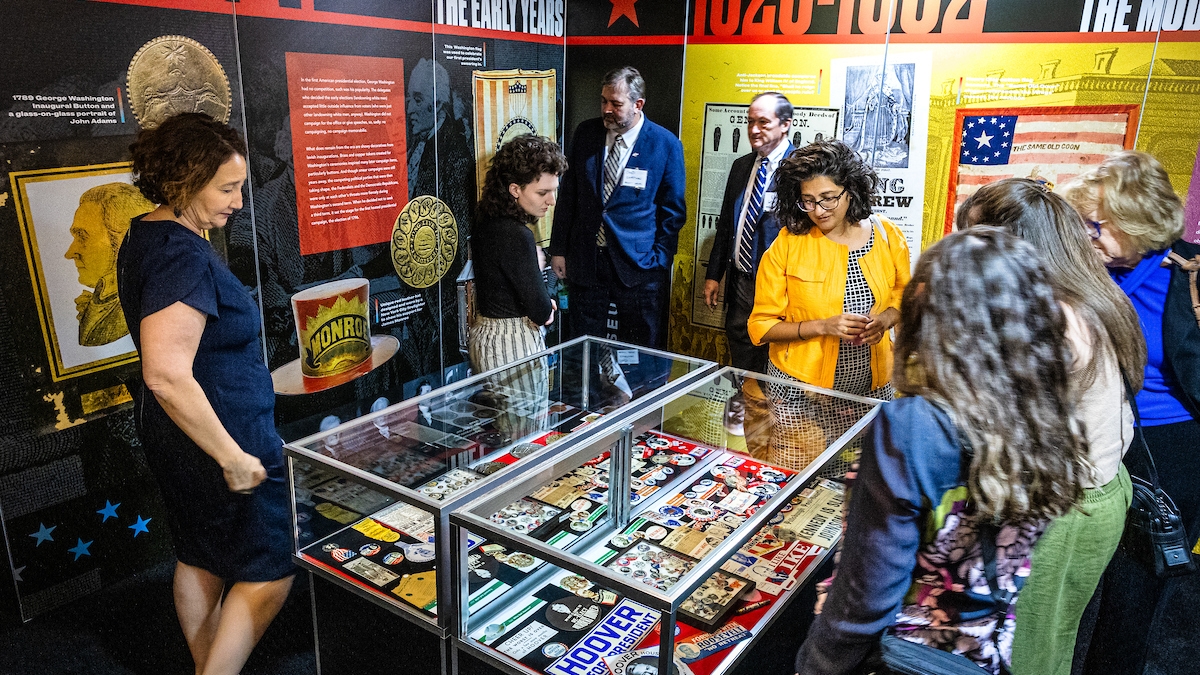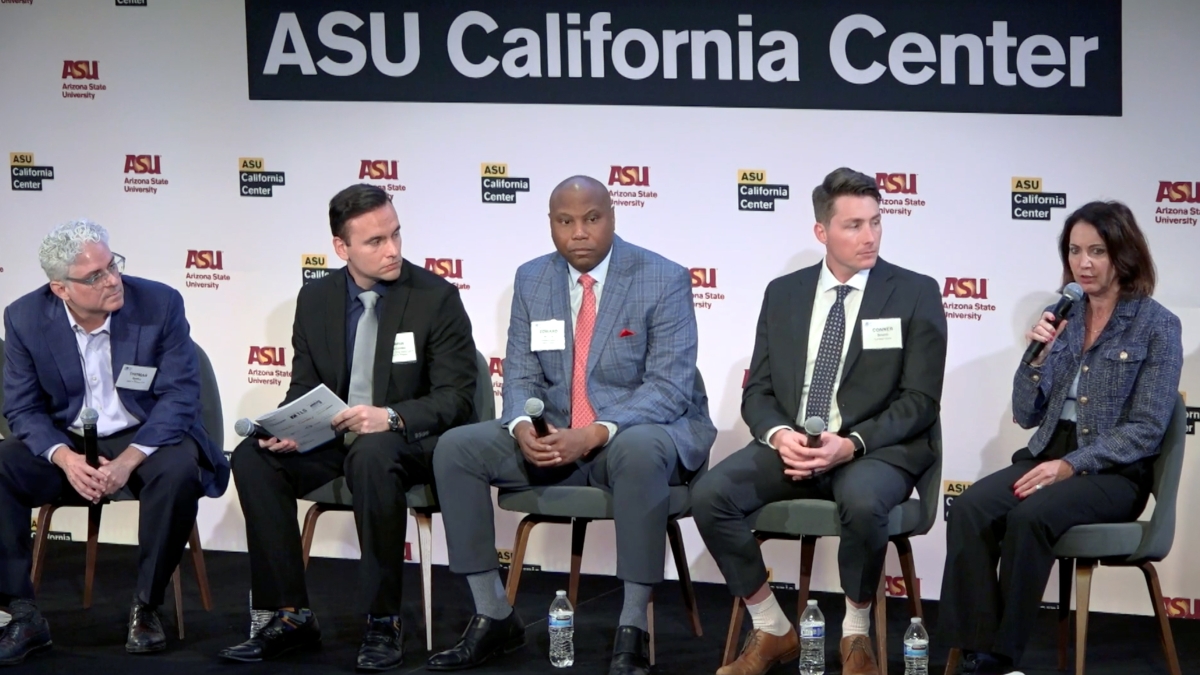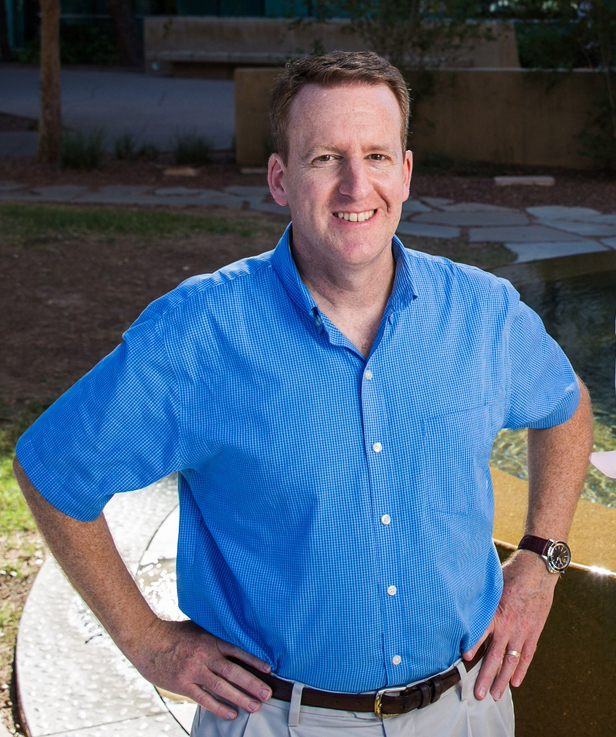The March 22 attacks in Brussels served as yet another grisly reminder that we live in a world where the threat of terrorist attacks has become something of a new normal.
Among U.S. presidential candidates, there have been varied reactions. Donald Trump was quoted as telling “Fox & Friends” that the U.S. has been “too lax” about terrorism, while former Secretary of State Hillary Clinton warned of the dangers of employing coercive interrogation tactics.
To get some perspective on the issue, ASU Now turned to John Carlson (pictured below), acting director of the Center for the Study of Religion and ConflictThe Center for the Study of Religion and Conflict is a research unit of the College of Liberal Arts and Sciences. and associate professor and faculty head of religious studies in the School of Historical, Philosophical and Religious StudiesThe School of Historical, Philosophical and Religious Studies is an academic unit of the College of Liberal Arts and Sciences..
Question: Some would argue that the wave of recent terror attacks have bolstered certain U.S. presidential candidates’ rhetoric concerning the sealing of borders, bans on immigration and the use of coercive interrogation. What kind of effect could that have on how the American public views those issues?
Answer: I certainly think that some politicians on the campaign trail have said some things to stoke fears about terrorism. Certainly, we should be appropriately concerned about terrorism, but we need to be responsible and think about the problem from several angles.
It’s worth stepping back and putting things in perspective — something that isn’t likely to happen on the campaign trail. Overall, I would say that since Sept. 11, 2001, both the Bush and Obama administrations have kept Americans pretty safe. Since then, there have been no successful major terrorist attacks — certainly nothing approaching the order of 9/11 emanating from outside the United States. So the assumption that our first task should be to resume waterboarding, restrict Muslims from entering the country or start policing Muslim neighborhoods is overblown.
We’ve been confronting terrorism for 15 years now. We’ve learned some lessons, some things that work well — and some things that don’t. Terrorism is a global problem, but it is important to keep in mind that it looks different in different places. Some in the media or on the campaign trail would have us believe that what’s happened in Europe this week will happen in the U.S. next week — in the same way and for the same reasons. But there are important ways that terrorism in Europe is different from terrorism in the United States, which is different from terrorism in various regions in Africa or Asia. Terrorism is a global phenomenon, it’s true, but it’s important to keep local contexts in mind — especially as people on the campaign trail seek to capitalize on recent terrorist attacks to further their election prospects.
Q: A recent New Yorker article“American Presidential Campaigns in the Age of Terror,” by Benjamin Wallace-Wells. stated that after the November 2015 Paris attacks, “[Obama’s] administration has held that preventing terrorism does not require wars, or a repeal of civil liberties, but only enhanced and vigilant police action to distinguish malevolent actors from the benign communities in which they have embedded.” Is that still true today?
A: Let’s distinguish use of force from questions of civil liberties, which always require balance and some trade-offs. But we’ve certainly not seen a wholesale repeal of civil liberties.
But when it comes to force, I’m not sure that characterization was ever entirely true — even for Obama. This president has shown himself to be a committed commander in chief who has employed military force worldwide, whether drones or special-operations forces, to hunt terrorists. As well, I would note his willingness to use force in Libya and Syria — I would still call that “war” even if those operations entail a much lighter footprint than used in the invasions of Iraq or in Afghanistan.
I think there’s still a pretty strong recognition — the president voiced it again after the Brussels attacks — that ISIS remains a serious and dangerous threat and that force will have to remain one of the tools in the president’s tool kit.
But let’s also not forget the importance of strong intelligence and police action. Just this week the Belgian authorities admitted they erred in not detaining one of the suicide bombers in the Brussels attack that Turkey deported.
"Terrorism is a global phenomenon, it’s true, but it’s important to keep local contexts in mind — especially as people on the campaign trail seek to capitalize on recent terrorist attacks to further their election prospects."
— John Carlson, director of the ASU Center for the Study of Religion and Conflict
Q: In reaction to the Brussels attacks, Hillary Clinton came out against the use of torture, saying it would be “an open recruitment poster for more terrorists.” Is that an accurate assessment?
A: I think it’s not just Hillary Clinton who is rightly worried about resuming torture. Former CIA director Michael Hayden commented that if a would-be President Trump wants to carry out waterboarding, he better bring his own bucket and do it himself. Their comments are a reflection of what we’ve learned in recent history. Even if you can hypothetically justify coercive interrogation, the practice has worked against us in the last decade. That is something that has been learned across various sectors of government.
It’s easy to sound tough and make big claims, but the reality is that’s not the best or only way to confront terrorism. The vulnerability for strong democratic countries such as the U.S. is their willingness to compromise their values by overreacting, particularly when it comes to force.
The real issue — and we know this from the long history of many powerful countries who have confronted terrorism and have fallen into this trap — is you go overboard when you rely on torture or excessive force. That’s how you alienate the very people you must depend upon to prevent and confront violent extremism — people caught in the middle who are themselves often the greatest victims of terrorism. That’s the story of many western colonial empires, including Belgium and France, which today are still struggling to fully integrate people from their own former colonies into their culture.
By the way, to my earlier point: Those who carried out recent attacks in Paris and Brussels fit very different profiles of terrorists than the lone wolf that we see in the U.S. Some lone wolves here have been inspired by Islam — in Fort Hood and San Bernardino, for example. And we can’t overlook the religious dimensions here. But, in the U.S., think of all the extremely dangerous lone wolves whose terror and rage have been driven by a range of other motives — ideological, social or racial. Timothy McVeigh, whose terrorist act killed 168 people in Oklahoma City, held strong antipathies against the federal government. The killers in Columbine and Virginia Tech who walked into classrooms and killed their fellow students were clearly psychologically troubled, but what they did was still a form of terrorism. Dylann Roof, who walked into an African-American church and killed members of the congregation, acted out of racial hatred. They were all lone wolves who committed terrorism. But you won’t prevent terrorist attacks by overreacting against everyone who bears some likeness to the aggressor. That will only alienate the people most likely to help prevent such acts from happening in the first place.
Q: If these kind of terror attacks continue, is there a possibility it could affect the rhetoric of more liberal policymakers?
A: I’m not sure if that is true. One CNN poll I recently saw had Hillary Clinton only a few points behind Donald Trump in terms of whom people trust to respond most effectively to terrorism. And she was ahead of the other Republican candidates. Obviously, Clinton and Trump have very different ways of looking at the problem of terrorism, but I don’t see Democrats racing to embrace Trump or Cruz’s approaches.
Top photo by Dora Mitsonia/Freeimages.com
More Law, journalism and politics

Exhibit uses rare memorabilia to illustrate evolution of US presidential campaigns
After one of the most contentious elections in history, a new museum exhibit offers a historical perspective on the centuries-old American process.“We The People! Electing the American President” had…

TechTainment conference explores the crossroads of law, technology, entertainment
What protections do writers, actors, producers and others have from AI? Will changing laws around name, image and likeness (NIL) eliminate less lucrative college sports programs?And what does…

How to watch an election
Every election night, adrenaline pumps through newsrooms across the country as journalists take the pulse of democracy. We gathered three veteran reporters — each of them faculty at the Walter…

